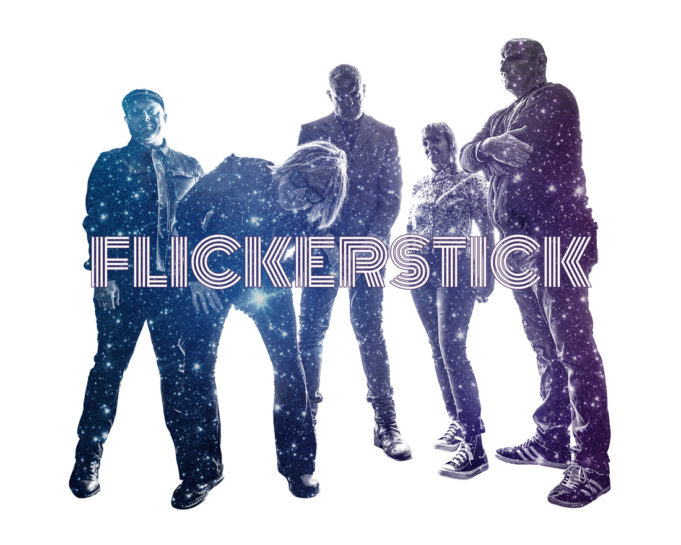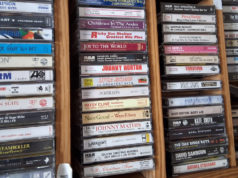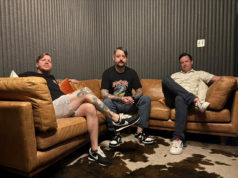Do you know how wormholes work? My understanding — based mostly on physicist Michio Kaku’s Hyperspace, a theoretical-physics-for-normies book published in 1994 — is that if you want to travel from one point on a plane to a second, more distant point on a plane, you fold the plane in half so that the two points are adjacent, then, taking a pencil, you poke a hole through the two points, thereby creating a “wormhole” from one part of universe to the other. You just enter one side and exit the other in a moment, circumventing all the eons and light-years that exist in between. Wormholes make space-time irrelevant, replacing it with instant continuity from past to present to future, a bridge between here and there, and then and back-then.
Flickerstick’s Superluminal feels like a wormhole to me. It starts with the four-song EP put out in 2023 by the legendary local alt-rockers. Contract Killers contained studio versions of newer songs (circa the mid-2000s) that had previously been released in 2007 as live-album tracks on Live from Atlanta: Two Nights at Tree Sounds Studios. Superluminal is the band’s first full-length of new material in over 20 years, and its sonics and essential Flickerstickishness sound so much like a natural progression from Flickerstick’s 2004 predecessor, Tarantula, that it’s almost as if the new record is an artifact from another world, one where instead of ending Flickerstick in 2009, the bandmembers hashed it all out and carried on to make their best record yet.
All that is impossible, though, because without the decades between 2004 and now, Superluminal could not exist. Superluminal exists because the band broke up and in such a way that even a 2022 reunion concert — let alone a new album — sounded about as likely as getting struck by lightning while winning a record-breaking lottery jackpot. Yet the new album is indeed real (zap!), and while I doubt anyone in Flickerstick will emerge Powerball-jackpot-rich in its wake, I think they all feel like the opportunity to make Superluminal is an unexpected windfall.
It wouldn’t be the band’s first. Years before its current lineup of lead singer/rhythm guitarist Brandin Lea, lead guitarist Rex Ewing, drummer Todd Harwell, bassist Fatima Thomas, and guitarist Beau Wagener, the band rose to fame on the first and only season of a VH1 reality show. Bands on the Run ran in the spring of 2000, and Flickerstick emerged the winner based on the theatrical sweep of their FX-laden, stratospheric alt-rock, their kinetic live shows, and their booze-powered offstage antics. Their victory included such luxuries as $50,000 in cash, another $100,000 in gear, a music video, and a showcase with music executives, a.k.a. a gathering before the Gatekeepers to the Land of Rock ’n’ Roll Dreams. All of that led to their eventual signing with Epic/Sony, who committed to re-releasing the band’s debut LP, Welcoming Home the Astronauts. Flickerstick, already seasoned road warriors, now had an as-seen-on-TV reputation to behold, and the band spent the year between the VH1 show and their album release touring relentlessly, trying to show audiences they rocked as hard as they drank.
The crowds ate it up. The combination of hard work, good luck, and heavy partying put the band on the right trajectory for turn-of-the-century stardom. Their label appeared to be enthusiastic about supporting them, and Welcoming Home the Astronauts had a release date — September 11, 2001.
*****
There are a million things that regularly deflate promising young rock bands, but I don’t think a culture-altering national tragedy is probably even in the Top 20. But like everything else in American life in the fall of 2001, the bottom dropped out of the music industry, which suddenly didn’t want to spend money on new bands (except The Strokes and bands that looked and sounded like The Strokes), even if they had a significant built-in audience due to lots of road trips around the country, including one broadcast on a major cable network. Flickerstick persisted for another eight years, eventually buying their record back and releasing a few more albums independent of the majors.
Even after that disappointment, the tours kept coming, and so did the crowds. But even in those pre-9/11 days, Flickerstick had started to splinter. On the VH1 show, there were the off-stage brawls and drunken jackassery caught on camera that the audience loved. Off-camera, the band suffered through mental meltdowns and the heavy physical toll of hard partying. Bands on the Run came to an end, but the alcoholism the experience it fostered didn’t. The years piled up. The band’s wires were fraying and breaking.
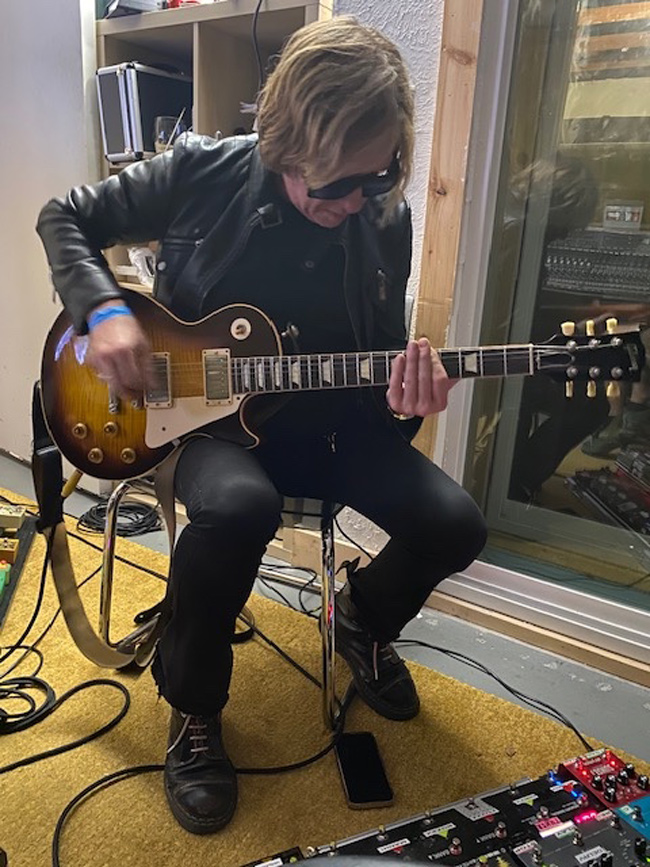
Photo by Beau Wagener and Fatima Thomas
They fired original drummer Dominic Weir in 2002 over personality conflicts. He was replaced by Harwell, who had most recently been in Denton rock band Doosu. Guitarist Cory Kreig, who founded the band with Lea in high school in the early 1990s, left in April 2005 following a lengthy tour, burned out by the grind of it all. Tim Locke, frontman for indie-rockers Calhoun and an accomplished solo artist, took over his position. The lineup changes were fine, and the band continued to tour and record. But by the time when bassist Fletcher Lea, who had founded Flickerstick with brother Brandin and Kreig, left to join the National Guard in 2008, the band drifted to a halt. Their last show was in 2009.
Life happened. Both Kreig and Fletcher have families. Harwell has a business. Lea got into live event production. Though they might have texted one another on occasion, they never got together. Eleven years went by, and the 20th anniversary of Welcoming Home the Astronaut’s debut rolled around. In anticipation, the band released When We Were Young: Singles, B-Sides & Rarities, 1997–2004. A month later, Fletcher, Kreig, Harwell, and Brandin met for the first time in 15 years for a Fort Worth Magazine interview and photoshoot. The fanbase they’d cultivated through the 1990s and late 2000s reacted enthusiastically, and to a lot of surprise and delight, in January 2022, Flickerstick announced a pair of reunion shows in June of that year.
*****
At a meeting with Flickerstick at a bar in Deep Ellum, I asked Harwell if it was strange to pick up writing in a band that had been apart for 15 years or so.
“All the curiosity about that, all the, I don’t know, not nervousness or anything … but all that [strangeness] happened in the build-up to the reunion show,” he said.
Wagener and Thomas were part of the band to help finish the shows, and after they ended, Harwell recalled everyone saying, “ ‘This is fun. Y’all want to keep playing?’ ”
Over the next two years, the bandmembers met every week to practice their set, as they suddenly found themselves booked for one-off shows and short trips around the country, including a Texas run and a New Year’ Eve concert at Billy Bob’s Texas with The Toadies. By the beginning of 2024, Brandin and company had a few new songs. A few months into that year, they had a few more. By the time they entered the home studio of Dallas-based engineer Mike Smith, it was like Flickerstick — now crewed by Brandin, Ewing, Harwell, Thomas, and Wagener — was a fully confident, fully formed band.
Yet Superluminal’s wormhole to 15 years ago opens in part because Kreig, who now sort of functions as the band’s de facto manager, neither worked on nor recorded on the new album but still gets a writing credit, as the album’s first single, “Your Heart Is a Fortress,” came out of an old demo he’d forgotten about. He sent it to Harwell.
“It was something he wrote, like, 25 years ago,” Harwell recalled, “and I was like, ‘Man, I love that song!”
“Your Heart Is a Fortress” bears all of the band’s hallmarks: The optimistic swell of a keyboard crashing into the dark texture of a huge guitar chord; the bombastic, arena-sized arrival of drums; the way Brandin’s voice steps out over it all like he’s about to jump off a cloud into outer space. Hearing this on the way to the Dallas bar, I could practically smell The Aardvark’s bathroom. The huge guitars and drums made me miss the way local rock bands sounded 25 years ago — jangly, augmented chords washed in a meticulously assembled battery of FX pedals that would best approximate the experience of interstellar travel, plus huge distortion, feedback as a medium that can be directed and carved like tactile TV static or a swarm of enraptured wasps. This, along with huge singalong hooks, is what a Flickerstick album sounds like to me.
Thinking about his songwriting way back when against the new album, Brandin acknowledges the distance between the albums’ lyrical content. “With Astronauts, half of it is an optimistic record because I was young. I wrote it when I was 20, 21 years old, so I still had some thoughts that life was going to be all right, and there’s things were going to be — could be good, you know? And then Tarantula was about experiencing what it’s like to be famous, really, if only for a while, like partying too much, paranoia, and all that shit. But, you know, then, cut 20 years late, it’s like … that isn’t the same world I live in now. Like, am I going to start writing about Metamucil and the AARP? So, this album’s lyrical content is very different from the other ones, but the music, I could see, sounds similar” to vintage Flickerstick material.
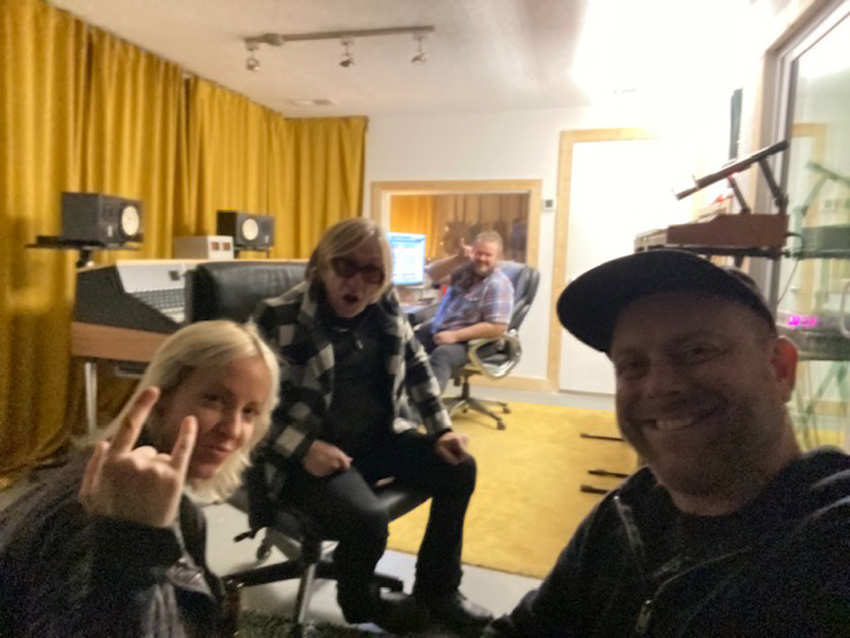
Beau Wagener and Fatima Thomas
Superluminal’s songs made me think of old DFW bands like Doosu, Hi-Fi Drowning, and Mazinga Phaser, from an era — the mid-to-late-’90s — when local bands were heavy and spacey. Harwell described the musical influences of Flickerstick’s modern lineup as a “crossover … of shoegaze and heavy rock, cinematic music.”
In practice, that crossover translates into arrangements like the dreamy, chiming guitarscape on “Champagne Lips” and the shimmering, Cure-like melancholia of “Diver.”
Brandin said that the practices leading up to the reunion and the two years afterward reinvigorated his songwriting. He had had two bands in the wake of Flickerstick’s dissolution — The February Chorus and Jetta in the Ghost Tree — and he’s regularly played solo since then. But he said he isn’t the kind of songwriter who just fills up notebook after notebook.
“I’m not that way,” he said, but performing old songs sort of primed his muse, as has the idea that everyone’s time on earth is finite. “The fact that we got to play under this name and with this old-song stuff, too. Like, I hate to say I used to take it for granted, but when you’re younger, you know, when I was in my 20s and 30s, I thought, this is just what life is, you know? And then you realize, like, how really hard it is, which we all know: to get five guys together, especially them when they’re older. … Even though it might not always be fun — it’s like even the rehearsals, like just us playing these songs, even if it’s the same ones from years ago or new ones — it just makes my internal tuning fork go off, you know? Because one of us could die at any moment. We’re at that age now. That’s honestly why I think I got that text, like, ‘Hey, do you want to finish these songs?’ Yeah, dude. Well, that was like when somebody kept asking us, ‘Why are you gonna do the reunion?’ And I was like, ‘Well, I think we need to do it while all five of us are still alive.’ ”
The passage of time is a recurring theme in Superluminal. One song, “Motorcade” is focused on death. Another one, “Sundown,” takes its inspiration from the Lea brothers’ aging father.
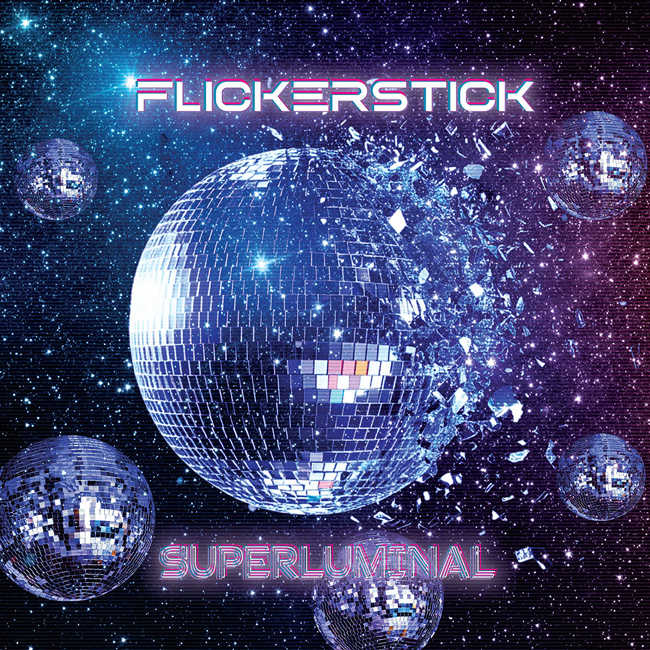
“My dad got real sick and went into the hospital a couple years ago,” Brandin said, “and I wrote that song the night I heard that he went in. He got diagnosed with Sundowner Syndrome. … He would call me in the middle of the night once a week. like he was on speed. That’s what it’s like. When his Sundowners thing would kick in, he would call and have the most bizarre conversations that made no sense. So, anyway, he listens to some of the song, and he’s just like, “Yeah, man that beat? I like that one!’ I’m like, ‘It’s called ‘Sundowner,’ Dad. Like, you have that! The whole song’s about madness.’ … I still don’t even know if he made a connection, but he liked it.”
“Motorcade,” Brandin said, is about “that cemetery, Greenwood. … When I wrote that, my dad had just gone in the hospital, and I didn’t know how serious it was, and his health has been kind of bad. He’s 77, so I didn’t know if he was going to make it, but he ended up being OK.”
Superluminal hits streaming services on Friday, with a vinyl edition to be released in the coming months. The band will headline the Granada Theater in Dallas on Saturday, Nov. 29, with direct support from Dallas’ Rosegarden Funeral Party, and after that, Flickerstick would like to play the cities where their biggest fanbases are: Atlanta, Baltimore, Orlando, and Portland.
“We’d love to reconnect with those areas,” Brandin said. “I mean, a whole generation has grown up since then. … People who listened to us 20 years ago bring their adult kids to the shows now,” his voice climbing in amazement.
Maybe for those adult kids watching a Flickerstick show with their parents, the wormhole separating the band as they existed in the late 2000s and the iteration that exists now might not be noticeable. But for those of us who were there back then, Flickerstick’s new album opens a window between those eras, giving you a contiguous view of past and future.



